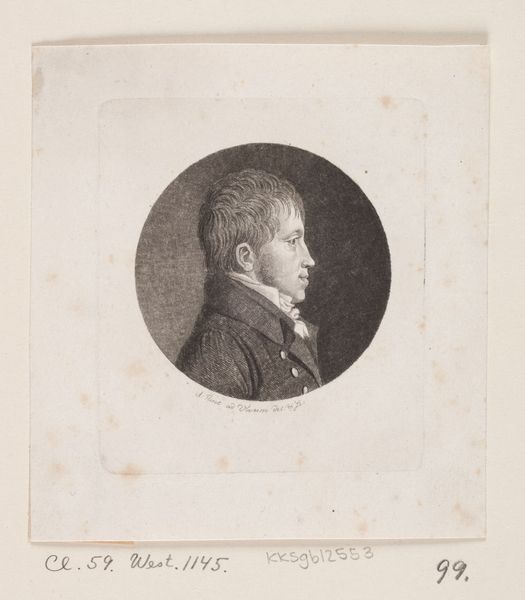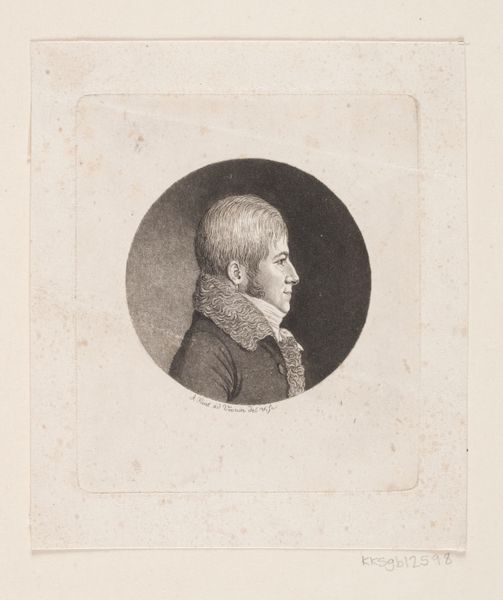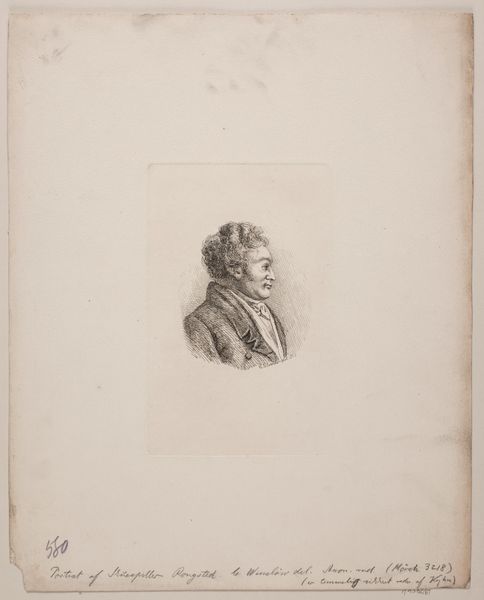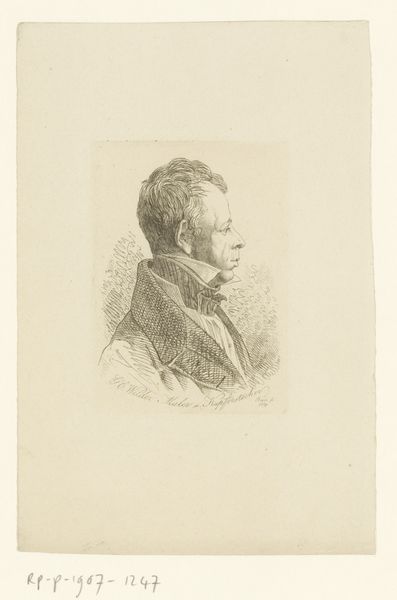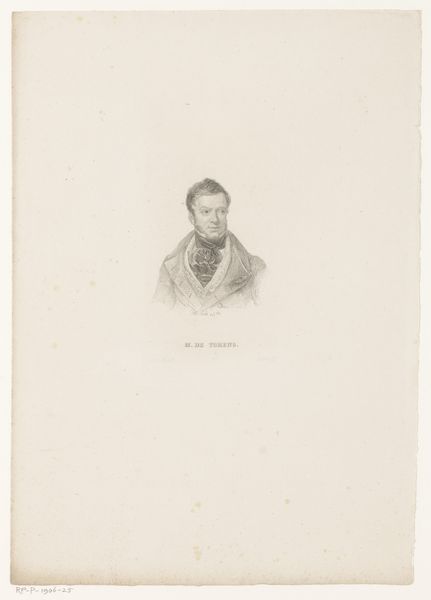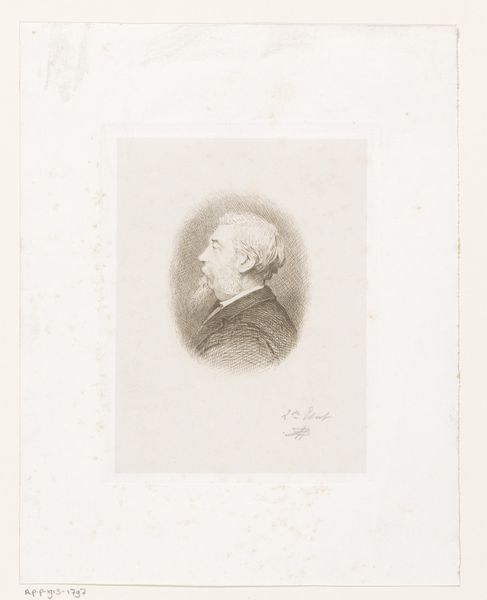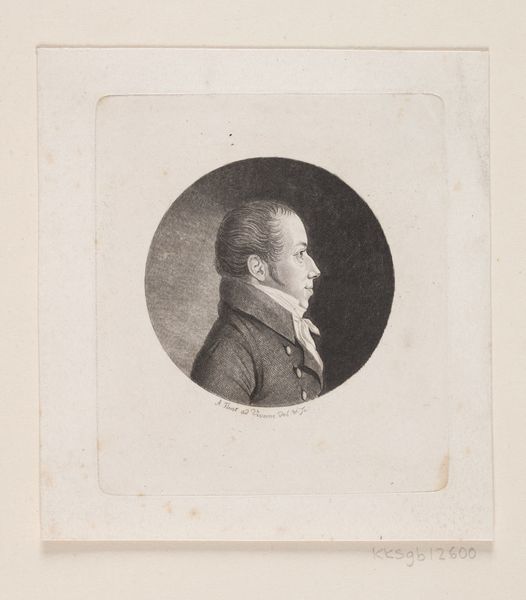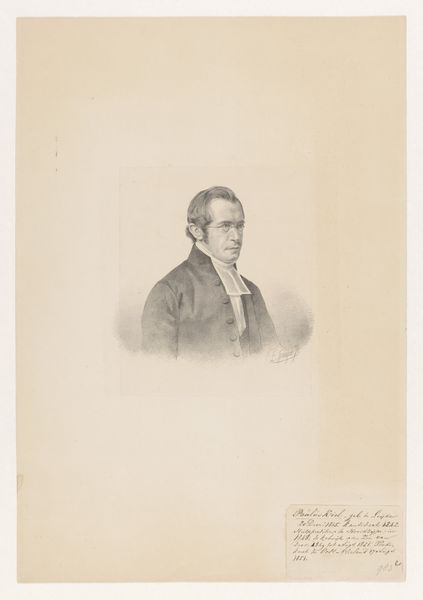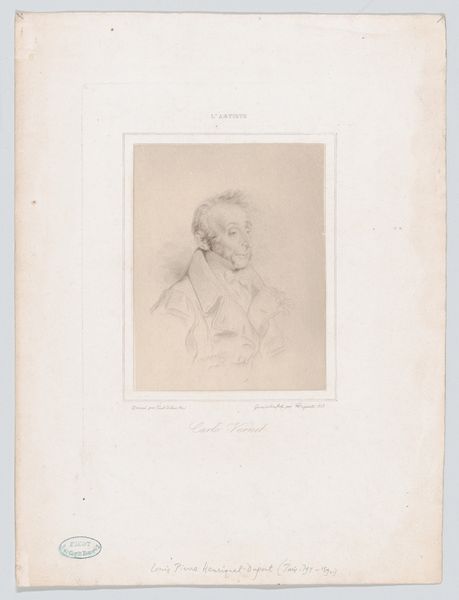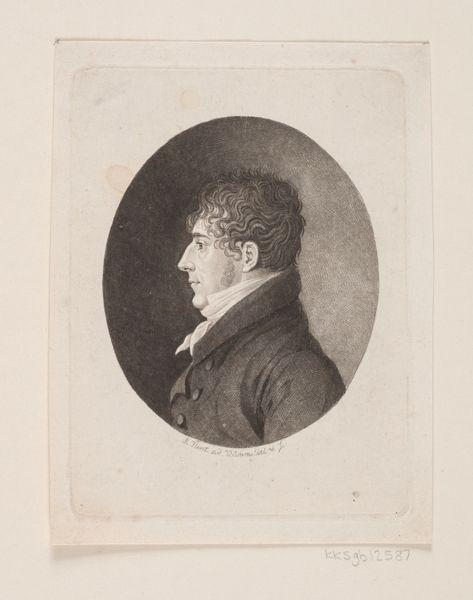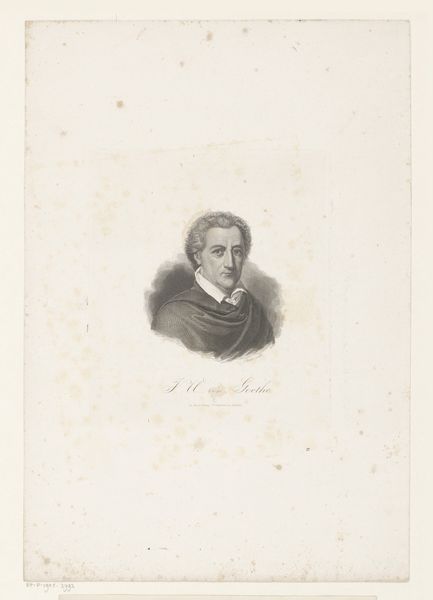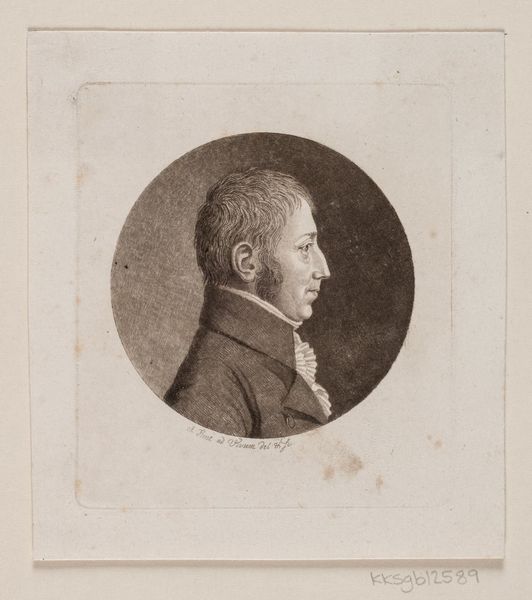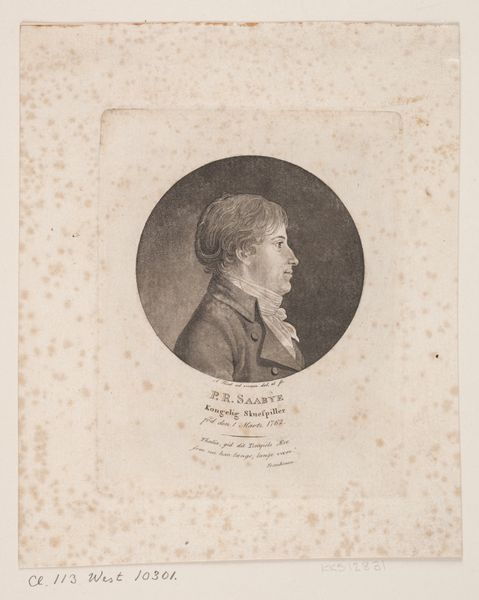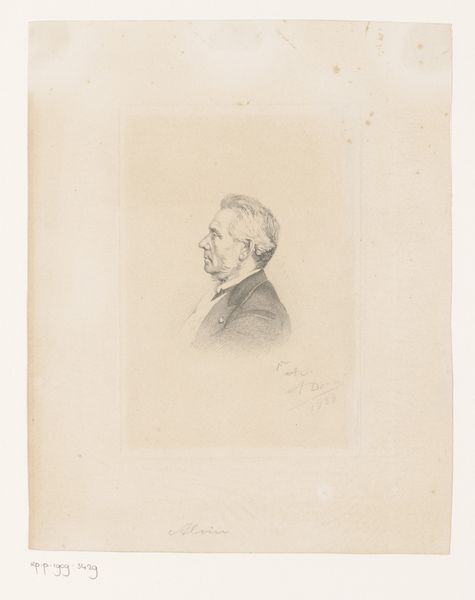
print, etching, engraving
#
portrait
#
pencil drawn
# print
#
etching
#
pencil sketch
#
old engraving style
#
romanticism
#
line
#
engraving
Dimensions: height 182 mm, width 129 mm
Copyright: Rijks Museum: Open Domain
Editor: So, this is "Zelfportret van Florian Grospietsch," an engraving from 1824. It’s a striking profile; there’s a quiet intensity in his gaze. How do you interpret this work? Curator: Immediately, I see a negotiation of power and representation. Consider the period – the early 19th century. Who had the means to commission or create portraits? This self-portrait becomes a statement. He is taking control of his own image, defining his own narrative, against perhaps, the conventional portraiture of the time, largely for nobility. Editor: That makes sense. The artist’s clothing seems…unassuming. Curator: Precisely! Look at the coat, the simple scarf. This is a Romantic era artist portraying himself, likely pushing against the societal constraints, and establishing himself as a thinking, feeling individual rather than someone defined solely by social status. What might the act of creating a print, a reproducible image, say about Grospietsch’s intentions? Editor: To make himself more accessible? Break down the barriers of who gets to be seen? Curator: Exactly. How does this democratisation of image-making impact not only Grospietsch's image, but also the power dynamics in early 19th-century society? Editor: It challenges the existing hierarchy. Curator: Absolutely. And that self-awareness is perhaps the most radical element of this seemingly simple self-portrait. It invites us to consider who is controlling the narrative, then and now. Editor: I never thought about a self-portrait like that, as a statement of power. Thank you for your insights. Curator: And thank you, this piece urges us to continue questioning how identity is constructed and circulated.
Comments
No comments
Be the first to comment and join the conversation on the ultimate creative platform.
